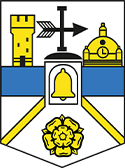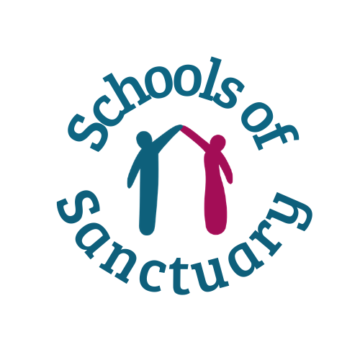Religious Education
Religious education (RE) should make a major contribution to the education of children and young people. At its best, it is intellectually challenging and personally enriching. It helps young people develop beliefs and values, and promotes the virtues of respect and empathy, which are important in our diverse society. It fosters civilised debate and reasoned argument, and helps pupils to understand the place of religion and belief in the modern world.
Our curriculum leader for RE is Mrs Katie Smith
Intent
At Glusburn School, we want children to explore challenging questions that focus on: meaning and purpose in life, beliefs about God, ultimate reality, issues of right and wrong and what it means to be human.
Implementation
Children experience RE lessons once every fortnight. This allows the children sufficient time to become fluent in their knowledge and skills, and recalls will ensure this is embedded in their long term memory.
We follow North Yorkshire’s ‘Agreed Syllabus for Religious Education’. We introduce knowledge of religions in a thought out sequence of topics that examine beliefs and their impact on the many areas of life; family, worship, customs.
RE is a compulsory part of the curriculum for all Reception age pupils and is taught using the North Yorkshire ‘Agreed Syllabus for Religious Education’.
RE is non-statutory for Nursery age pupils, although teachers may wish to incorporate RE material into children’s activities if they choose to.
Our aim is to engage pupils in systematic enquiry into significant human questions which religions and world views address, so they can develop the understanding and skills needed to appreciate and understand why and how people live as they do and develop responses of their own.
How does the Religious Education Curriculum reflect our school's values and ethos?
We actively promote respect and tolerance of other faiths. This is achieved through our Religious Education curriculum and the life of the school. We are a rights respecting school where children are encouraged to understand and recognise their rights as a child.
Article 14 Every child has the right to think and believe what they want and to practise their religion, as long as they are not stopping other people from enjoying their rights.
Governments must respect the rights of parents to give their children information about this right.
Assemblies and class work promote the diversity of society and the right for each person to be respected and valued equally regardless of ability, gender, faith, heritage or race.
Children acquire an understanding of and respect for their own and other cultures and ways of life. Festivals and celebrations of other faiths are recognised and celebrated within our school. We raise money for those in need locally and internationally.
How does the Religious Education Curriculum impact on Children's Cultural Capital and becoming well rounded citizens?
Our Religious Education curriculum strengthens pupil’s cultural capital as pupils gain essential knowledge and understanding of the world and society, to become well rounded educated citizens. Pupils acquire skills to respectfully challenge others, both in the search of their own spiritual deepening and in being curious about others. Through Religious Education, pupils gain a broader view of religious and secular communities including trips and visits
Special Educational Needs and Disability
The vision of this agreed syllabus is of RE for all. Every pupil can achieve and benefit from their RE, including all pupils with Special Educational Needs and Disabilities (SEND).
RE is a statutory part of the core curriculum for all pupils, including those with learning difficulties. Pupils with SEND are found in all contexts, and all teachers are teachers of pupils with SEND. Good quality teaching in RE will tailor the planning of the syllabus carefully to the special needs of all pupils. RE provision for different groups of pupils will vary but all pupils should be included in RE.
.For pupils with social and emotional and mental health difficulties (SEMH)
- RE can enable pupils to address deep issues of concern in helpful ways by exploring spiritual material and seeing how others have tackled difficult experiences.
- RE lessons can explore, in the safe space schools should provide, complex emotions or thoughts, and challenging questions.
- RE can assist in the development of pupils' maturity and self-awareness.
How is RE enabled in the Early Years?
In Early Years RE is taught through the Specific area of Understanding the World: People and communities and is enabled through, for example: providing activities and opportunities for children to share experiences and knowledge from different parts of their lives with each other; providing ways of preserving memories of special events; inviting children and families with experiences of living in other countries to bring in photographs and objects from their home cultures including those from family members living in different areas of the UK and abroad; ensuring the use of modern photographs of parts of the world that are commonly stereotyped and misrepresented; helping children to learn positive attitudes and challenge negative attitudes and stereotypes; visiting different parts of the local community; providing role-play areas with a variety of resources reflecting diversity; making a display with the children, showing all the people who make up the community of the setting; sharing stories that reflect the diversity of children’s experiences; inviting people from a range of cultural backgrounds to talk about aspects of their lives.
Whilst also considering the following questions from the North Yorkshire’s ‘Agreed Syllabus for Religious Education’: Which stories are special and why? Which people are special and why? Which places are special and why? What times are special and why? Being special: where do we belong? What is special about our world?
Reception children receive a weekly R.E. adult taught session.
Impact
Our teaching promotes the spiritual, moral, social and cultural development of our pupils. It exposes children to other cultures and viewpoints and allows them to gain an understanding of some of the key religions represented in Britain. Our teaching enables pupils to acquire knowledge and understanding of religious beliefs, attitudes, practices and rituals. They will also develop their own beliefs and values and be able to express these confidently whilst remaining considerate and respectful of others. They will also be aware that some people have no attachment to religious beliefs and follow secular philosophies.
By following the North Yorkshire agreed syllabus and incorporating our own flexible, interactive and engaging planning we hope to provide our children with an understanding of the importance and value of religious education, with on-going benefits for an open, articulate and understanding society.
Religious education is integral in creating a broad and balanced curriculum and provides children with the opportunity to learn about the world and other people's beliefs and experiences, allowing children to become open minded, independent and confident thinkers that enjoy engaging with challenging questions and learning new things.
Our Long Term Plan:
The North Yorkshire SACRE agreed syllabus:
north yorkshire agreed syllabus 2019 2024 1.pdf









